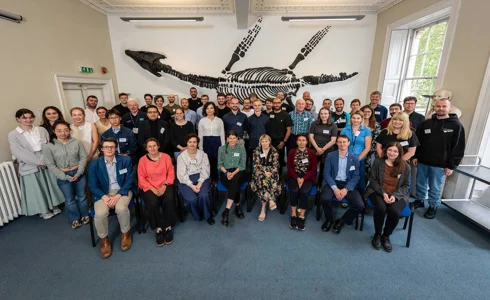
Yuqiang Lin
Theme
Digital Systems, Optimisation and IntegrationProject
Multi-camera Multi-object Cross Tracking in Urban EnvironmentSupervisor(s)
Dr Nic Zhang, Prof Adrian EvansBio
Yuqiang received his Bachelor's degree in vehicle engineering(autonomous vehicle and new energy vehicle) from the Chongqing University of Technology, China in 2022. After that, he joined the EPSRC AAPS CDT at the University of Bath to be one of the Cohort 4 students.
He has done some research related to powertrain and intelligent transport systems before. This includes creating an optimal energy management strategy for both HEVs and BEVs(loaded with intelligent transport system) and the vehicle loaded with heating, ventilation and air conditioning systems. He has also done some projects about machine learning and self-driving cars before. Yuqiang chose to further his studies at the AAPS CDT in the hopes of combining his previous knowledge with exploring cutting-edge self-driving car technologies.
In his spare time, Yuqiang loves playing and watching football, his favourite football team would be Atlético de Madrid. Besides this, he also loves travelling and explore new things.
Fun Facts
- I changed my name from Haitian Lin to Yuqiang Lin just because a fortune-teller told my parents that my previous name is unlucky.
- I am not afraid of ghost, but I am extremely reluctant to watch those bloody scenes in horror movies.
- My family and I are not good with drink, a cup of beer can make me feel dizzy.
- I have always dreamt about being a musician, maybe one day I will give everything up to be a full-time musician.
- My undergraduate supervisor also graduated from the Mechanical Engineering department of University of Bath.
Multi-camera Multi-object Cross Tracking in Urban Environment
Object tracking using cameras is a hot research topic with many practical uses, from video surveillance and self-driving cars to analyzing crowd behavior and understanding traffic scenes. The idea is to use one or multiple cameras to follow and identify the location of objects, like people or cars, across several video frames. While this sounds straightforward, it's quite challenging due to factors such as changes in lighting, camera angles, and objects blocking each other.
In recent times, the use of multiple cameras for surveillance has grown due to the availability of affordable, high-quality cameras and powerful computers. Multi-camera systems can offer more comprehensive tracking compared to a single camera, but they also bring additional challenges. For example, ensuring all cameras are in sync, dealing with objects that get blocked from view, and handling changes in how an object looks from different angles.
Yuqiang's project aims to tackle these challenges by enhancing existing methods and introducing a new framework based on machine learning. The goal is to make tracking objects across multiple cameras more accurate and dependable, ultimately contributing to the betterment of real-world applications such as smarter city management and improved traffic flow.
